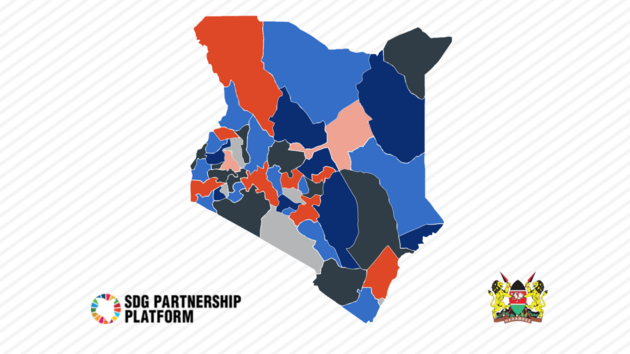In our hometowns and around the globe, equitable access to quality healthcare is not yet realized. To achieve universal health coverage (UHC), Kenya has made a policy decision to expand primary healthcare (PHC) services beyond curative healthcare. However, Kenya, like many other low- and middle-income countries (LMICs), grapples with the following challenges:
- Improving quality of care
- Optimizing the health workforce to provide comprehensive services
- Sustainably funding primary healthcare for all
PHC has been recognized as an integral pillar for the achievement of sustainable development goals. To translate the potential of PHC into lasting impact in Kenya and other LMICs, it is critical that primary care is backed by policy and financing reforms that embed new delivery models and innovative approaches into the health system. Strategic shifts in health policy and financing can create an enabling environment to foster sustainable scaling of innovations that advance PHC and improve health outcomes globally. To understand the characteristics of innovations that can be adopted and integrated into the public health system to improve PHC, Kenya’s Ministry of Health (MOH) and the United Nations Sustainable Development Goals (UNSDG) Partnership Platform commissioned a research project. Under the guidance of Kenya’s MOH, the Innovations in Healthcare research team conducted key interviews with regional, national, and global health and innovation experts to understand how policymakers can foster the adaptation and sustainable scaling of innovations that improve PHC in Kenya.
The research was commissioned by Kenya’s Ministry of Health and the UNSDG Partnership Platform and funded by Takeda Pharmaceuticals, Inc.
The research insights were clustered around coordinated policy actions that increase the pipeline of health innovations and amplify those that work, such as integrating health innovations into existing policy conversation to support fast tracking of innovations across all levels of the health care system. To support identification of successful primary healthcare innovations, the research team sourced healthcare innovations and assessed each against PATH’s definition for primary healthcare to ascertain fit as a primary healthcare innovation.
PATH defines primary healthcare as the most basic package of essential health services and products needed to prevent disease, promote health, and manage illness.
Sixty-eight innovations passed the definition test and were evaluated and scored against an adapted set of criteria based on global evidence. The criteria were centered around three major questions that assess an innovation’s impact in advancing primary healthcare:
- How well does the innovation work?
- Can the innovation scale and adapt to the target population?
- What value does the innovation add to society and to the healthcare system?
The innovations with the highest scores were selected for a case study series. Ultimately, the enterprises selected include Clínicas de Azúcar, Jacaranda, Living Goods, ESM-UBT, Noora Health, North Star Alliance, and Pro Mujer. The case studies outline each innovation’s impact and potential for advancing primary healthcare in Kenya and comparable countries. The lessons learned can be applied to countries around the world grappling with the challenge of adapting and scaling innovations to meet their critical primary healthcare needs. The insights highlighted in our research report point to several actionable next steps for policymakers, funders, innovators, and organizations implementing PHC innovations:
-
Make communities central to the adoption and scaling of PHC innovations
-
Secure sustainable funding to drive successful scaling of PHC innovations
-
Make health systems innovation-ready
-
Recognize that contextualization is key to the adoption and scaling of PHC innovations
-
Focus on coordination and collaboration to enhance the adoption and scaling of PHC innovations
Ultimately, for primary healthcare to truly expand and meet its users’ needs, innovative approaches and interventions working at scale, empowered by coordinated policy and financing shifts, will be essential.

